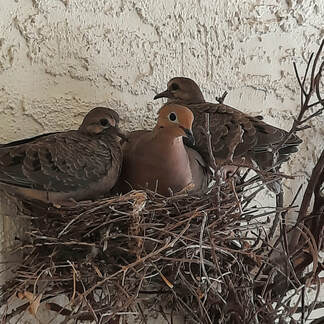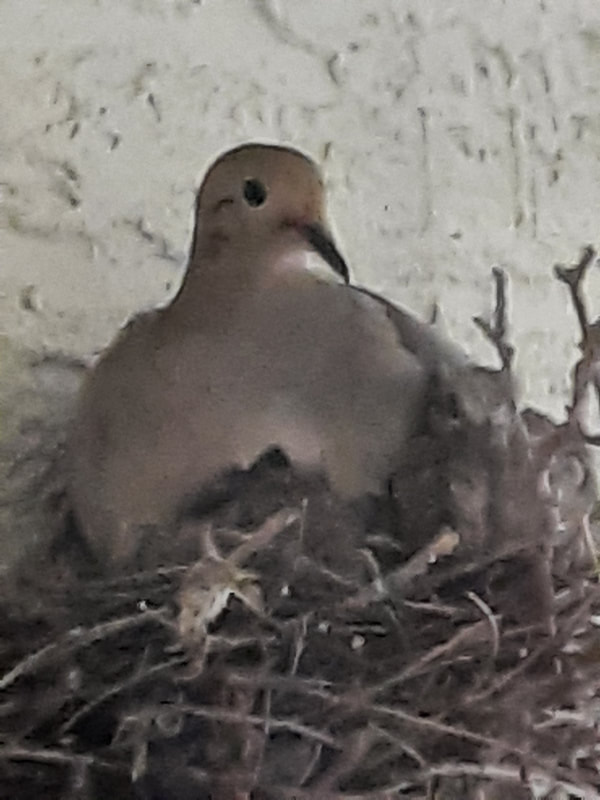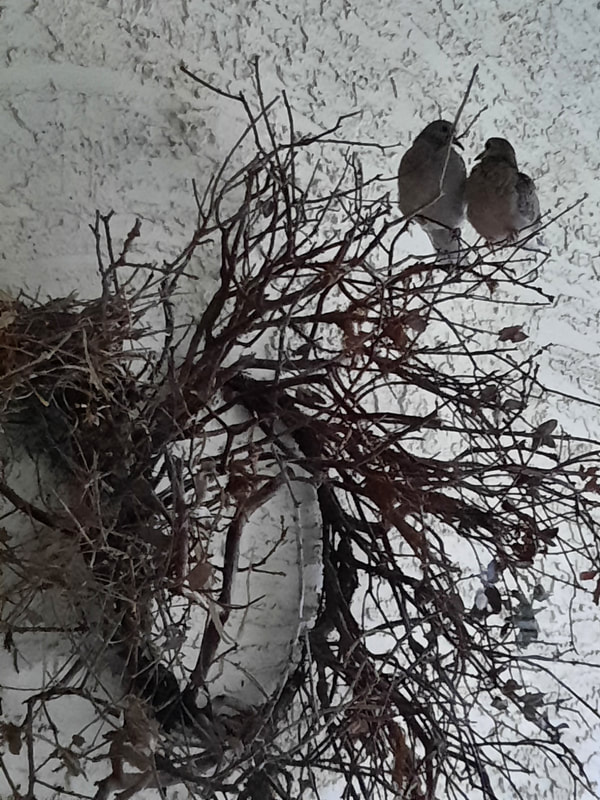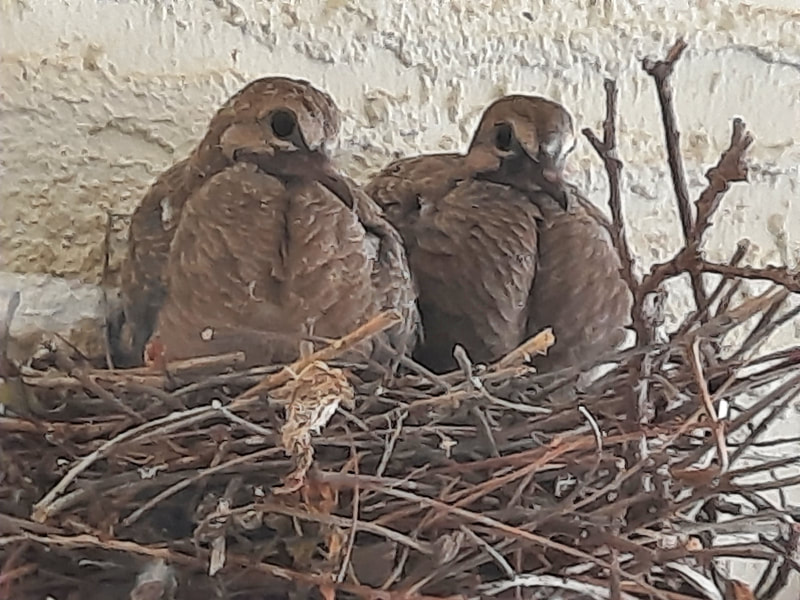 The nest is vacant. The mother dove sits on a branch, scanning the landscape below. What does she think now that her babies have left her tender care? We don’t know what goes through the mind of a bird, but anyone who is a parent knows what it’s like when a child leaves home to discover the world on their own. The mother and father Mourning doves built a nest in the front entryway of our house. Many Mourning doves mate for life. They make a good team. The mother built the nest, but the father brought nesting materials for her. When the eggs appeared, the birds took “shifts” sitting on the nest—Mama took nights; Daddy took days. We were excited when the eggs hatched; the fuzzy heads of the babies bobbed, their open beaks waiting for food. The babies grew quickly. Within a few weeks, they were nearly the size of the mother. With little room in the nest for her and the babies, she gave them room to sleep in the nest at night while she stayed close by, returning at daybreak. Soon, the mother and father bird encouraged the babies to test their wings. They preened often, removing the “baby down” in favor of newly grown feathers. Occasionally, they’d flutter their wings. The larger baby seemed more determined to learn to fly than the smaller one. We counted the days. The babies would “fledge” soon (at least, that's the way it's supposed to be). The next day, the mother and father returned simultaneously to the nest. It was a sight to see four birds crowded into the nest. It seemed the parents intended to coerce the young ones to leave the nest. The father flew off, then the mother glided to the sidewalk below. She remained on the sidewalk, looking up at the babies, waiting for them to follow. The larger baby flapped its wings. Suddenly aloft, it flew into the yard, landing on the edge of a planter. It had fledged—to freedom! However, the remaining baby sat quietly in the nest. It seemed reluctant to leave. Was it fearful? Not ready? Was something wrong? We didn’t know, but the bird was left alone, with the mother returning only to feed it. We hoped the parents wouldn't neglect it, as sometimes happens in the animal world if they sense that something is wrong. But then, just before dusk, came a surprise. The sibling, who had earlier flown from the nest, returned to stay with the small bird through the night. When the mother returned at daybreak, the sibling departed. The small bird remained in the nest, making no effort to fly. Again, at night, the sibling returned to stay with its nestmate. The next morning, the mother finally coaxed the small bird from the nest. It flapped its wings a number of times, then took the courageous first flight, landing in the yard. The mother stayed nearby, watching as the baby hopped across the street. It had survived it's first flight, now exploring its new world. The Mourning Doves had not only worked together as a team, but they cared about each other. Who would have guessed the sibling would return to the nest to help its nestmate? Or that the mother and father bird would wait so patiently for the hatchings to fledge? My husband and I discussed the wonder of it all. Who teaches the birds to build a nest, how long to sit on the eggs, or how to feed the babies? What prompts the mother and father birds to “take shifts” to care for the babies? How do the little know when it is time to flap their wings and fly from the nest? How does the mother know when to encourage the babies to leave? And how is it that these creatures know how to show compassion and take care of each other? (They are an example for some of mankind these days). The Book of Job in the Bible contains beautiful, descriptive verses about God’s creation and the wonder of all He has made (see Job 37:1-24 and Job 38:4-41). It is impossible for science to prove the universe's origin and the earth's creation, but faith in God makes belief in what would otherwise seem impossible, possible. Looking out our front window, we are sad to see the empty nest. We miss the doves. We felt a kinship with them, we talked to them, and checked on them every day. They grew accustomed to our presence. Perhaps they will return next year, and maybe one of the grown babies will raise its own brood in the same place. The empty nest brought back memories of when our children grew up and left home. Any parent knows what that feels like It's a big adjustment—and emotion-evoking. Yet, while some offspring readily "fly the coop," others need encouragement to get out into the world. But one thing is sure: the day of departure is one for which our children have been destined since birth. With each day, they grow closer to independence. Leaving home requires letting go—for us and for them. It’s a time of change and discovery, yet wrapped in hope for the future. The cycle of life continues. It’s part of God’s love story in His plan for His creation. That includes you and me—and the small creatures He made, too!
3 Comments
Rich
4/28/2024 07:53:52 pm
Great story.
Reply
4/29/2024 04:51:32 am
OOPS, wrote my comment in the wrong place. Just wanted to say how happy I am to be your friend. Love you
Reply
Leave a Reply. |
"Goodness
Through God's Word!" Find inner peace through Positive Thought, through Faith in God and through God's Word. Archives
July 2024
Categories |




 RSS Feed
RSS Feed